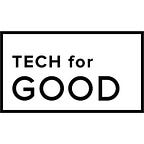How is technology changing democracy? Post 2/3: digital democracy in action
(2016)
By: Sam Firman
Below we’ve outlined the key strands of current digital-democracy work, complete with examples. It’s important to remember that in practice these strands are interlinked.
More transparent, non-hierarchical decision-making processes.
Discussion and representative decision-making are central to healthy democracy. Digital tools are particularly pertinent for this process because they make it easier than ever to convene and mediate deliberation between large groups.
Loomio, a deliberation platform founded in Wellington, New Zealand, is being used by the Wellington City Council and beyond. Co-founder Richard Bartlett is keen for the tech community to leverage its skills for social good. Loomio is a great example of this. Similarly, Common Ground for Action is the online manifestation of National Issue Forums, which allow groups to discuss and clarify tricky issues. Younger such projects are emerging all the time: Baoqu is a Spanish deliberation tool for massive online groups that exhibited at DCENT, Madrid; Assembl allows large groups to co-produce ideas and solutions; Appgree is an upvoting tool already used by millions of users; and Agora is a secure, anonymous balloting and electioneering platform.
Accessible, verifiable information
Accessible, verifiable information is a critical ingredient for any flourishing democracy. Citizens must be informed to be empowered.
Wikileaks is the most famous example of an organisation working with technology, often at great peril, to provide citizens with important information. Similarly, My Society and Democracy Club, both from the UK, are excellent examples of how using online platforms to provide accessible, verifiable information can lower barriers to political engagement and hold dishonest politicians to account. Other organisations are taking more specialist approaches to the same problem. World Brain, for instance, is a social startup hailing from Berlin that builds software to identify and correct scientific misinformation.
Internet decentralisation
The desire to decentralise power underpins many of the efforts to improve democracy. One particular application of this thinking is the internet itself. As tech giants like Facebook and Google increasingly centralise the internet, there is a growing movement, spearheaded by Tim Berners-Lee, to reverse this process and return the net to the more decentralised, democratic form it took in the early days.
It may be tempting to dismiss these concerns as nostalgic, but that notion is misplaced. The effects of internet centralisation are profound and widespread, both in politics and beyond. My Society founder Tom Steinberg’s post-Brexit thoughts on the growing power of the ‘filter bubble’ is one example of how internet centralisation hinders healthy democracy. Irina Bolychevksy, of Redecentralise.org, is also working to highlight the perils of internet centralisation.
Digital currency
The use of blockchain technology to create more secure, transparent, distributed and efficient financial systems is a hot topic. Given the symbiotic relationship between economic and political systems, the more financial technology adheres to democratic principles, the more democratic society as a whole is likely to become.
Free-software foundry Dyne is one of the organisations spearheading these efforts, through Freecoin, a set of tools allowing democratic organisations to run auditable, transparent reward schemes.
More democratic organisational models
If society is to become more democratic, major organisations must operate using democratic models. Currently, this is rare. Evgeny Morozov argues that we must combat the centralising, data-farming ethic of many commercial tech giants and work to create more democratic models for technology companies. This is central to the nexus between technology and democracy.
Trebor Scholz, of New York’s New School, is working on this front to create platform co-ops that could reclaim the so-called ‘sharing economy’ from centralised, proprietary businesses like Uber. In a more obviously political sphere, Wikipolitica, from Mexico, have demonstrated how data analysis, digital campaigning and other tools can be successfully combined to elect popular political candidates and change the definition of what a political campaign can be. If technology tools are to truly help achieve greater democracy, it must be alongside innovative models such as these.
Citizen-engagement/crowdsourcing platforms
This is arguably the most prominent, ambitious digital-democracy front of all: platforms that allow citizens to propose, debate, vote upon and enact civic change, thereby changing the dynamics of how democracy operates.
Iceland’s Citizen Foundation, Barcelona’s Decidim and Decides Madrid offer substantial evidence of the impact digital tools can have on democratic engagement. Collectively, they have engaged thousands of people in impactful democratic processes, and offer a compelling glimpse of how the tech world could help usher in a new paradigm of direct democracy. Similarly, smaller projects such as Hackity, Open Seneca, Pol.is and WAGL all demonstrate that the hacker ethic is being employed globally to this end.
